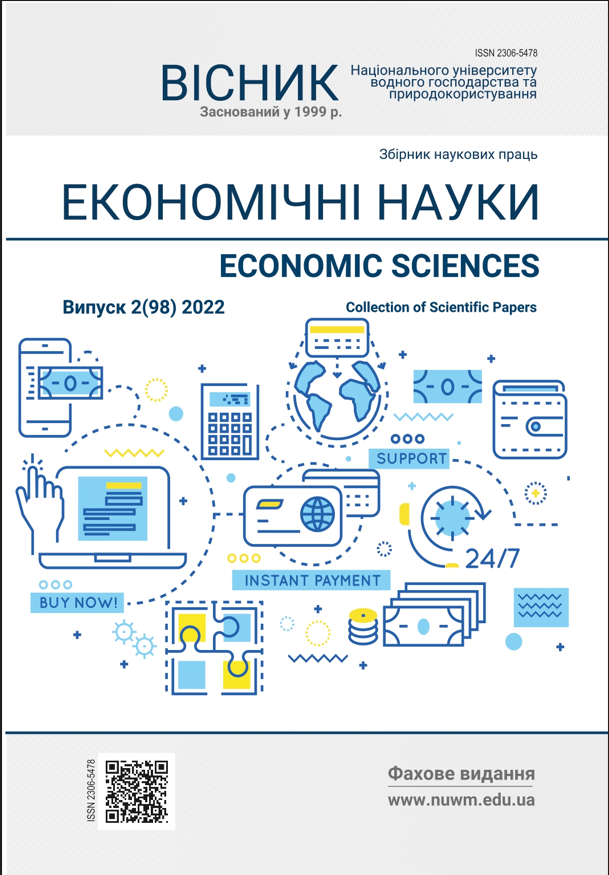PRACTICE OF THE USE OF DIGITAL TOOLS BY SOCIAL PARTNERS TO ENSURE THE EFFECTIVENESS OF COMMUNICATIONS IN THE SOCIAL AND LABOUR SPHERE
DOI:
https://doi.org/10.31713/ve2202220Keywords:
social partners, social dialogue, communication, digitalization, digital tools, digital skills.Abstract
The digitalization of social processes has not only raised a number of pressing issues for social dialogue, but also offered new opportunities to ensure its effectiveness: speeding up information exchange, greater openness of social partners, easier monitoring and evaluation of negotiation processes, accumulation and systematization of better practices of social dialogue, etc. In order to increase cooperation between employers, trade unions and relevant government agencies in ensuring tripartite dialogue, the latest digital tools should be used to facilitate their communication.European organizations of employers and employees use a lot of different digital tools in all areas of their activities, including for attracting new members, conducting negotiations, consulting, monitoring opinions. Despite the positive changes in the economy of Ukraine in the direction of digitalization, domestic social partners often underestimate and thereforedo not fully use digital tools for organizing dialogue.In the process of implementing and using digital technologies in their activities, social partner organizations face certain problems related to the deficit of digital skills of their members, data protection and network infrastructure and technologies. This is confirmed by the results of the author's study of the level of digital skills of representatives of one of the parties to the social dialogue, namely civil service employees involved in egovernment relations.In order to overcome these problems, the efforts of social partners should be aimed both at updating the digital infrastructure and technologies used at various levels of their interaction and at providing opportunities for the development of the necessary level of digital skills of participants in communication processes, including their awareness of protection data.References
ILO. Declaration on Social Justice for a Fair Globalization. 2008. URL: https://www.ilo.org/global/about-the-ilo/mission-and-objectives/WCMS_099766/lang--en/index.htm (дата звернення: 12.06.2022).
GCNU. Цілі сталого розвитку. 2015. URL: https://globalcompact.org.ua/pro-nas/tsili-stijkogo-rozvytku/ (дата звернення: 12.06.2022).
ILO. Social dialogue and tripartism. 2018. URL: https://www.ilo.org/wcmsp5/groups/public/---ed_norm/---relconf/documents/meetingdocument/wcms_624015.pdf (дата звернення: 13.06.2022).
Поплавська О. М. Соціальний діалог в Україні: стан, ефективність, перспективи розвитку в цифровій економці. Науковий вісник Ужгородського національного університету. 2019. Вип. 26. Ч. 2. С. 44–49.
Гідна праця: імперативи, українські реалії, механізми забезпечення : монографія / А. М. Колот, В. М. Данюк, О. О. Герасименко та ін. ; за наук. ред. А. М. Колота. Київ : КНЕУ, 2017. 500 с.
Сахарук І. Соціальний діалог як основа реалізації концепції гідної праці. Вісник Київського національного університету ім. Т. Шевченка. Юридичні науки. 2020. Вип. 2 (113). С. 56–61.
Осовий Г. В., Жуков В. І., Руденко В. М., Семеніхін В. О. Соціально-трудові відносини: питання теорії та практики в Україні : навч. посіб. Київ : АПСВ, 2005. 432 с.
Зеленко О. О. Бар’єри формування соціального діалогу в умовах розвитку сучасного українського суспільства. Часопис економічних реформ. 2015. № 4. С. 93–97.
Яцишин В. В. Нормативне закріплення принципів соціального діалогу у сфері праці. Прикарпатський юридичний вісник. 2018. № 1 (22). С. 82–84.
Петроє О. М. Соціальний діалог у державному управлінні: європейський досвід та українські реалії : монографія. К. : НАДУ, 2012. 304 с.
Bilan S., Mishchuk H., Samoliuk N., Ostasz G. Effectiveness of social dialogue in the system of sustainable economic development factors. VISION 2025: Education excellence and management of innovations through sustainable economic competitive advantage : 34th IBIMA Conference, 13–14 November 2019, Madrid. р. 13303–13313.
Панькова О. В., Касперович О. Ю. Формування ефективних комунікаційних стратегій взаємодії суб’єктів соціально-економічного розвитку в умовах цифрових трансформацій: методологічний аспект. Проблеми економіки. 2019. № 4. С. 200–208.
European Commission. Employment and Social Developments in Europe 2018. Luxembourg : Publications Office of the European Union, 2018. 280 p. URL: https://ec.europa.eu/social/main.jsp?langId=en&catId=89&newsId=9150 (дата звернення: 10.06.2022).
ETUC. Resolution on tackling new digital challenges to the world of labour, in particular crowdwork. 2017. URL: https://www.etuc.org/en/document/etuc-resolution-tackling-new-digital-challengesworld-labour-particular-crowdwork (дата звернення: 11.06.2022).
Eurofound. Social partners going digital: Using digital tools and adapting social dialogue processes. Luxembourg : Publications Office of the European Union, 2021. URL: https://www.eurofound.europa.eu/publications/report/2021/social-partners-goingdigital-using-digital-tools-and-adapting-social-dialogue-processes (дата звернення: 09.04.2022).
Работа Ю., Плаксін О. SMM для профспілкових організацій. Створення, розвиток та просування профспілкового ком’юніті у соціальних мережах. Київ, 2021. 78 с.
Carretero S., Vuorikari R., Punie Y. The Digital Competence Framework for Citizens. Publications Office of the European Union. 2017. URL: http://svwo.be/sites/default/files/DigComp%202.1.pdf (дата звернення: 10.11.2021).

